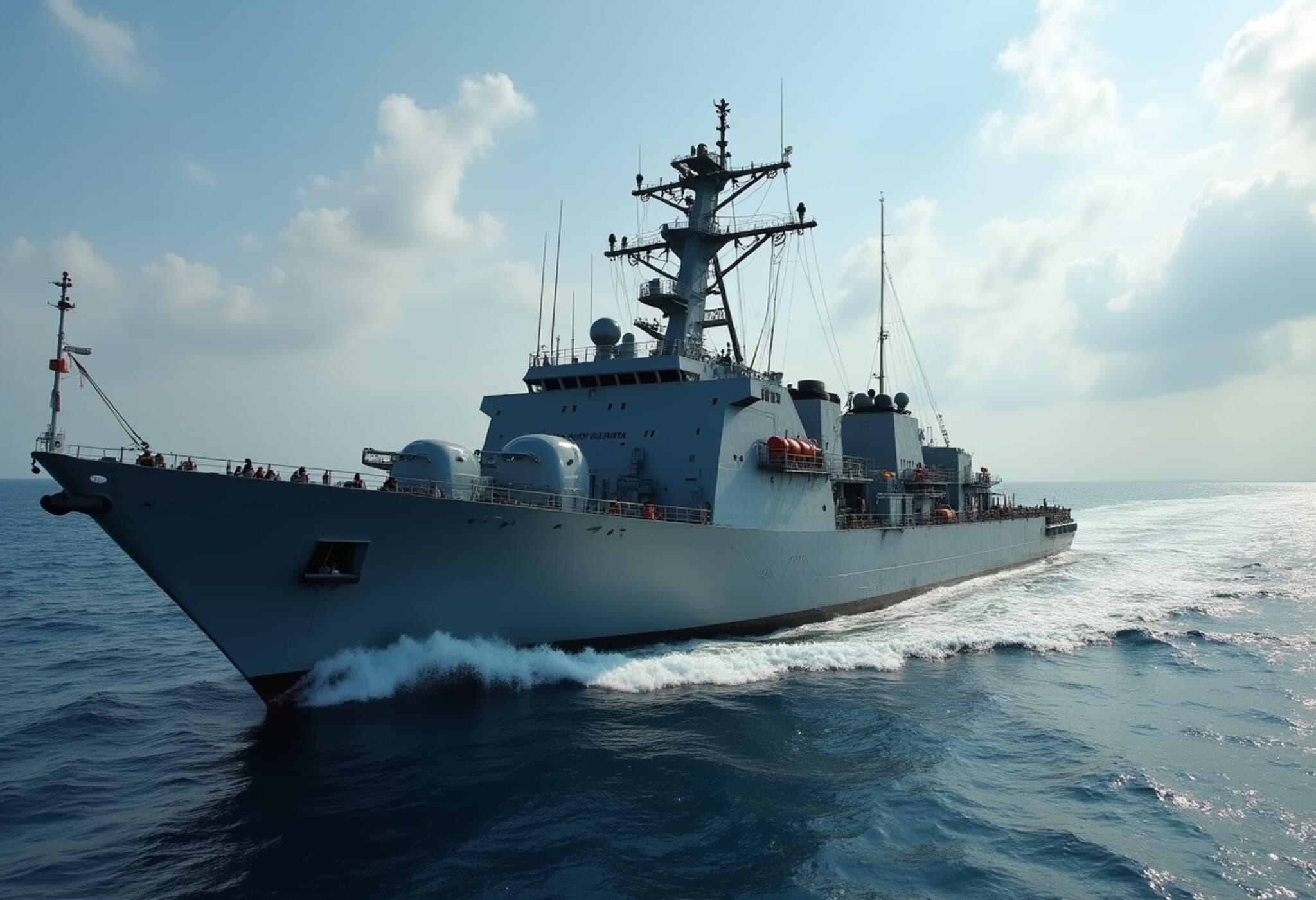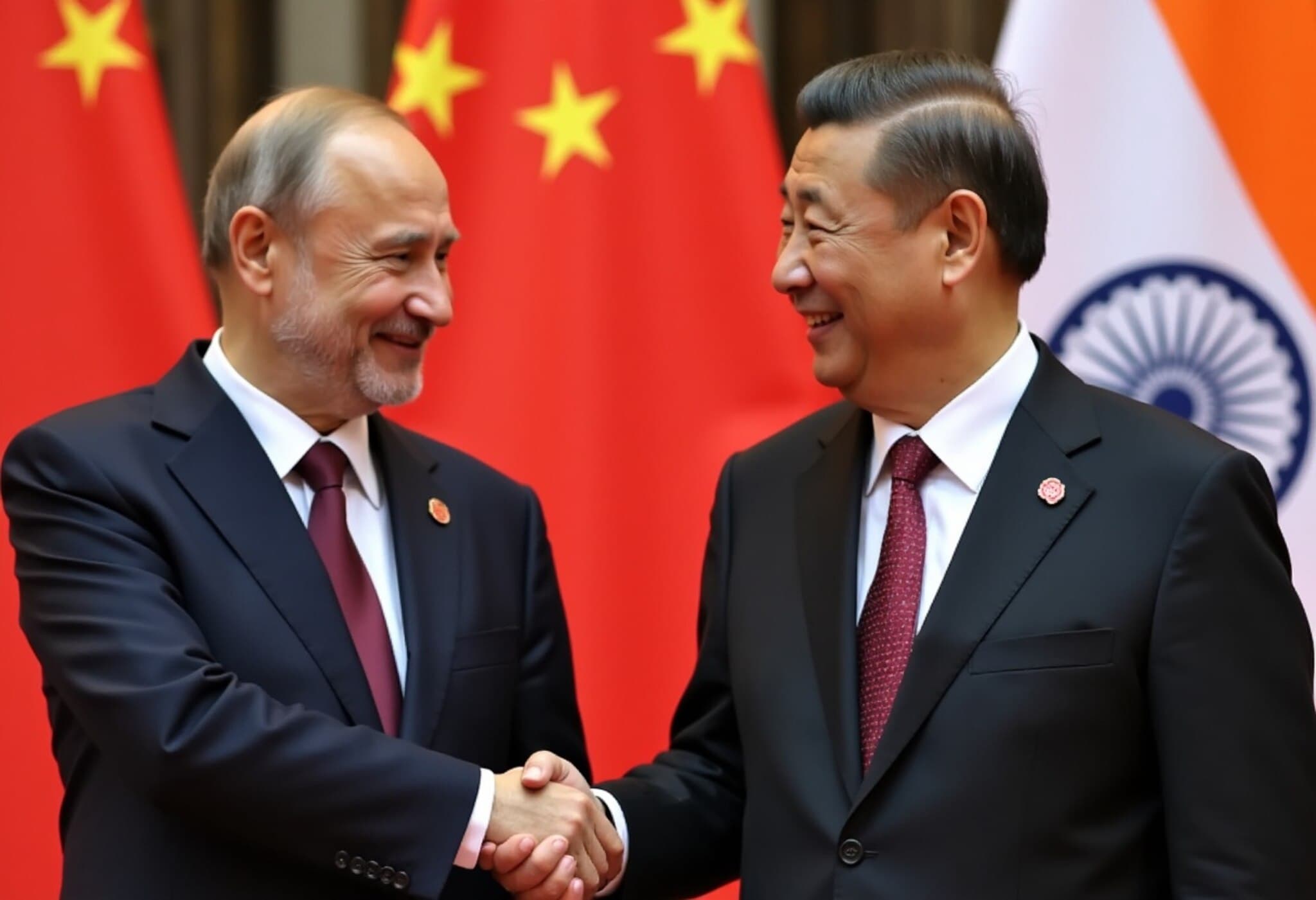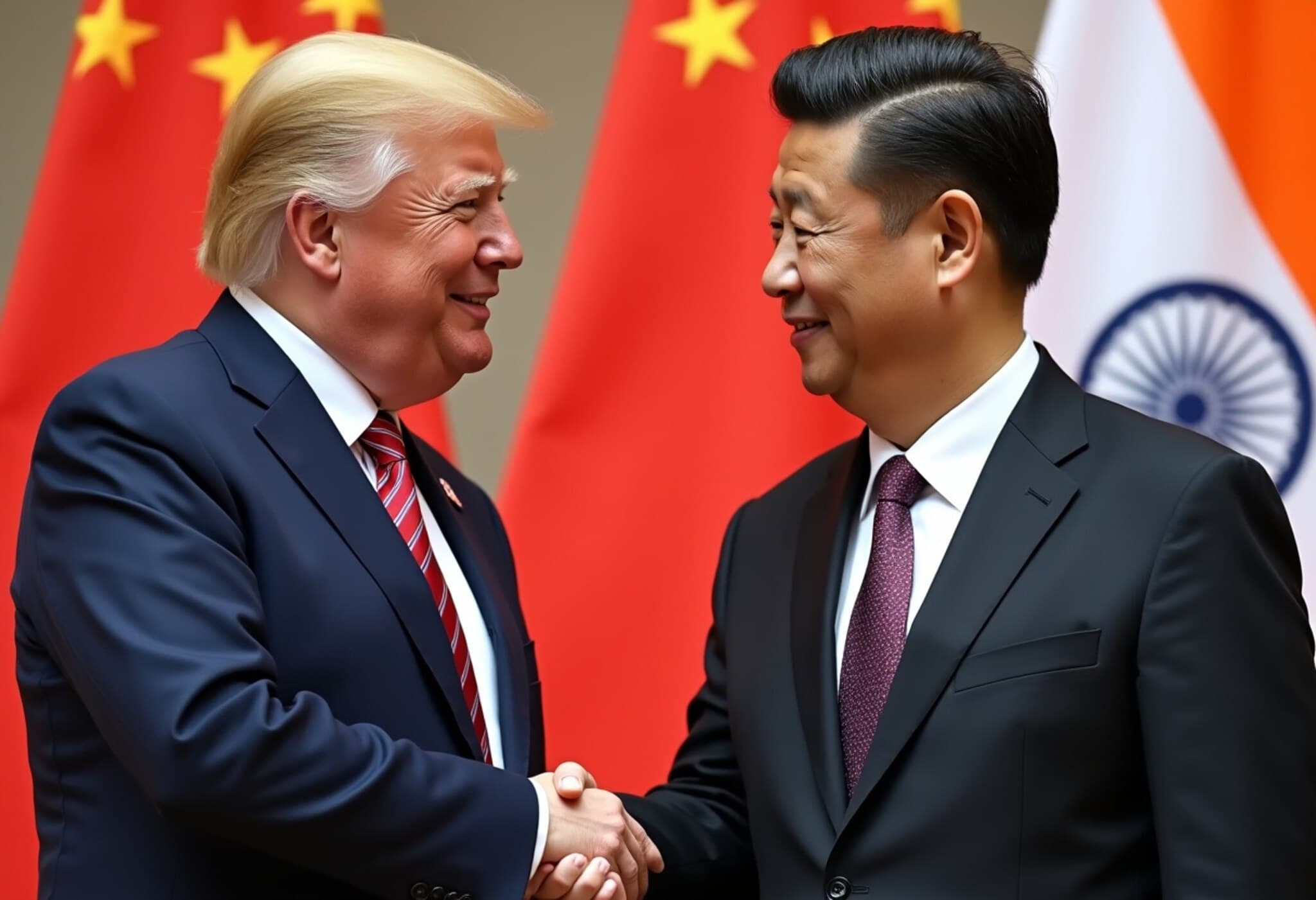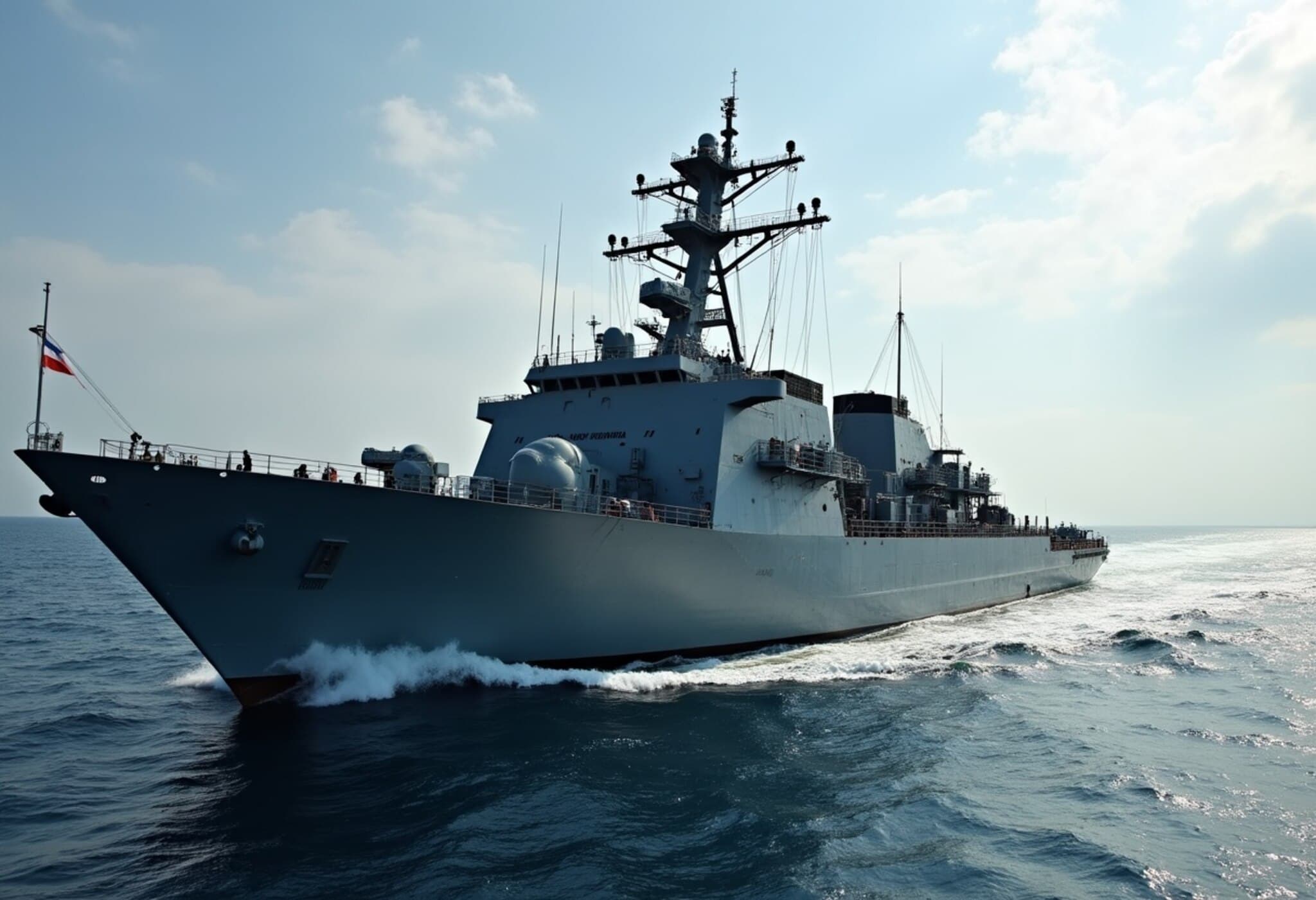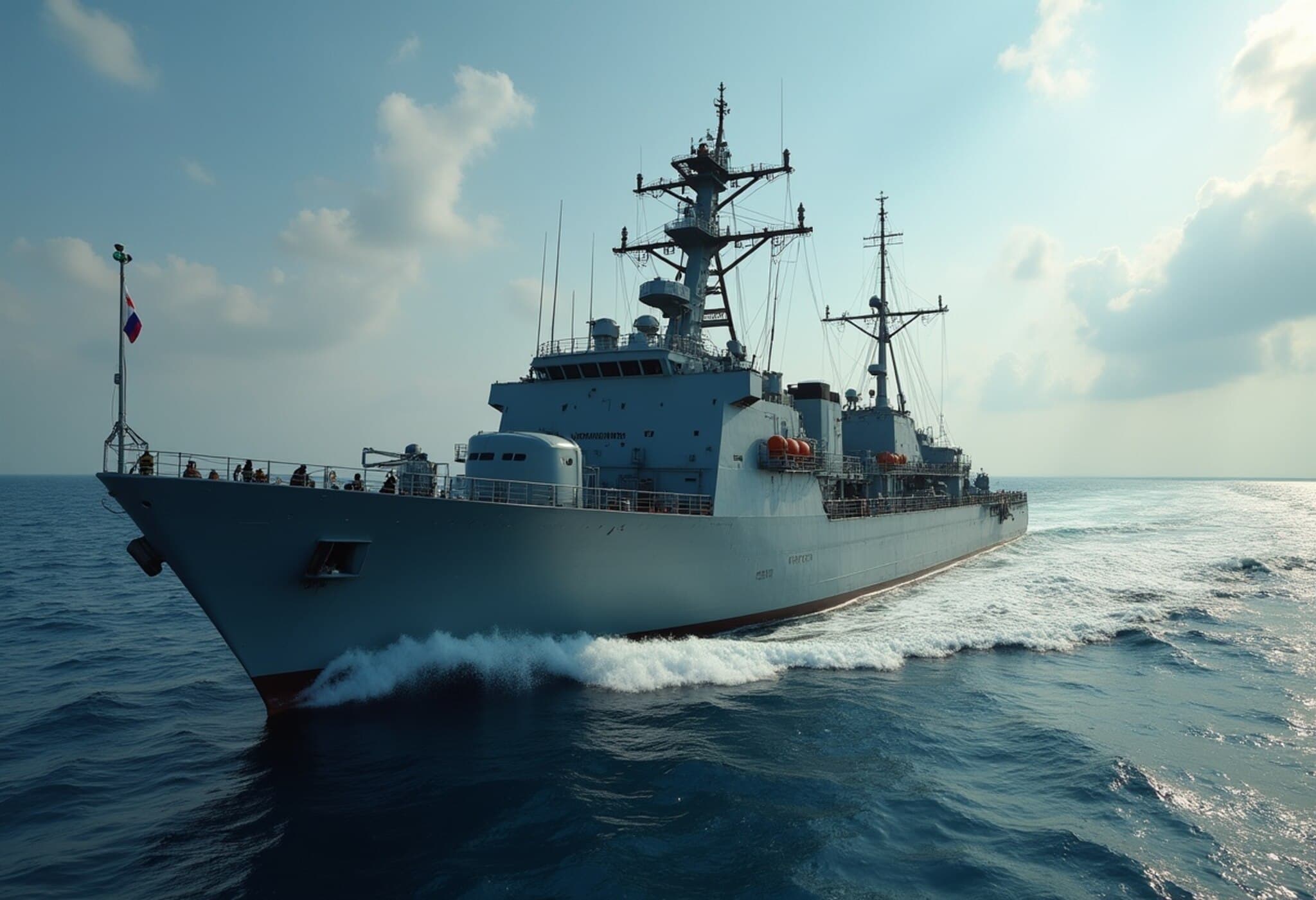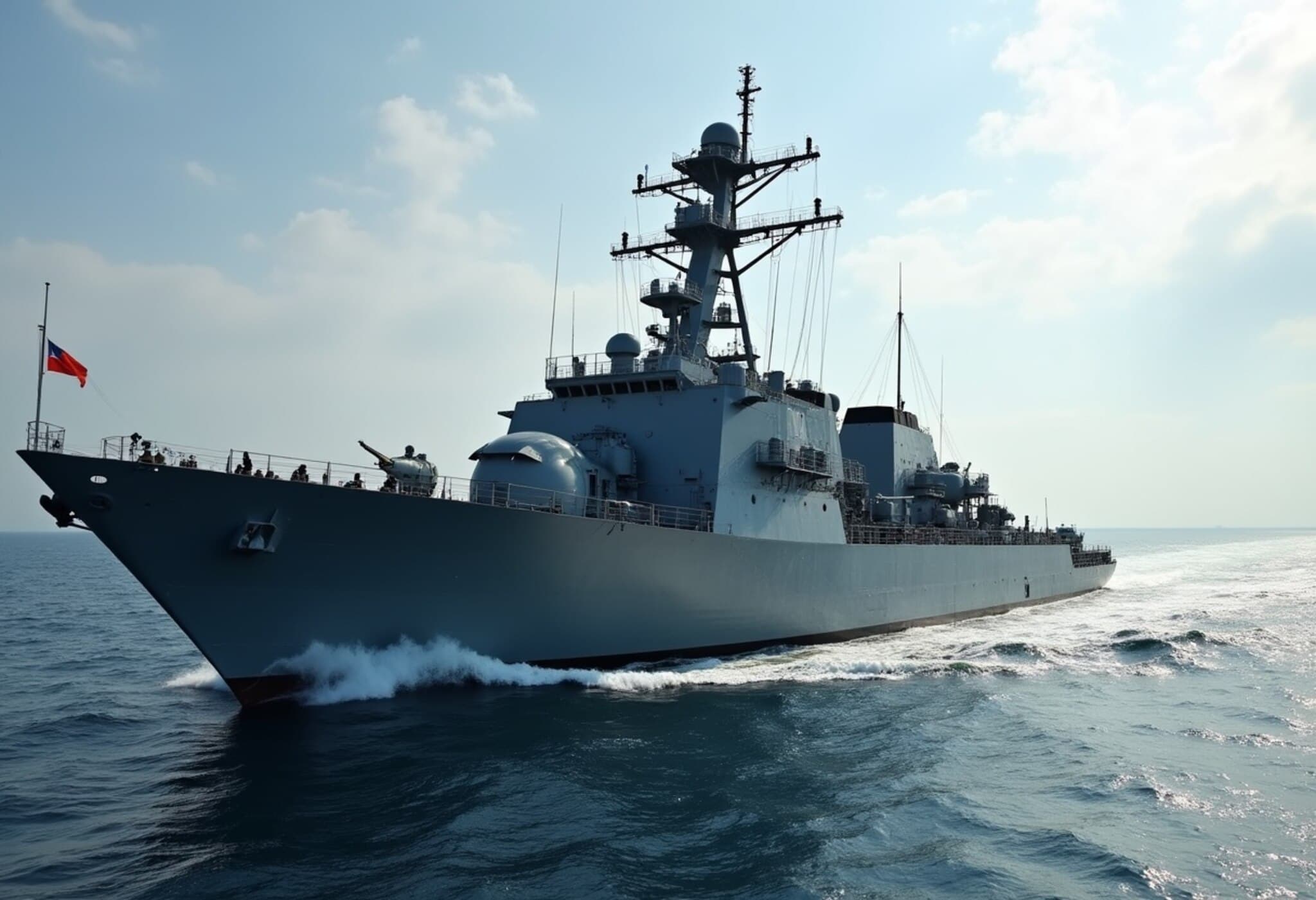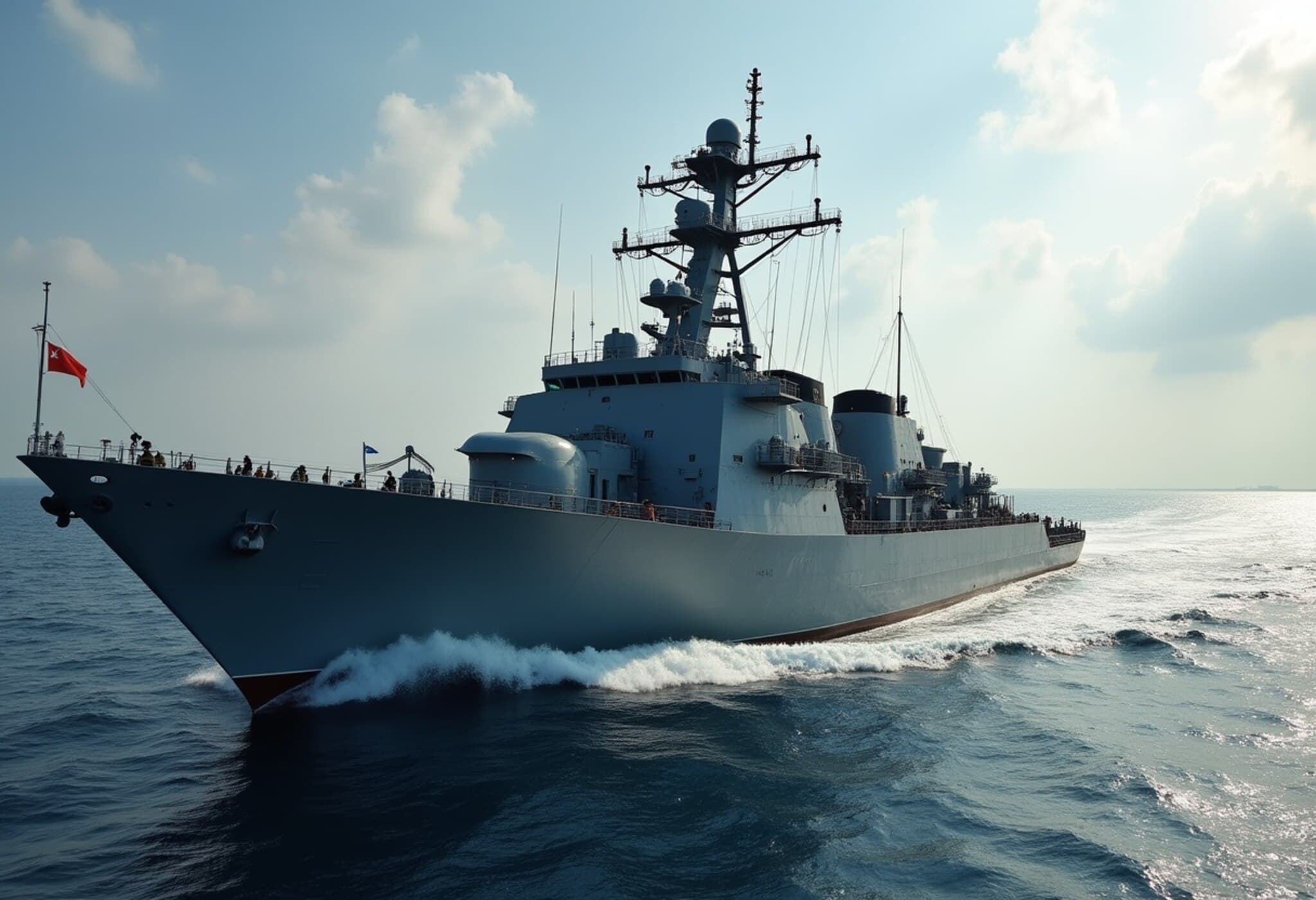Philippines Denounces Hazardous Chinese Tactics Amid Scarborough Shoal Collision
In the latest escalation of maritime tensions in the South China Sea, the Philippines has strongly condemned what it describes as "dangerous manoeuvres and unlawful interference" by Chinese vessels during a critical supply mission at the disputed Scarborough Shoal. The incident culminated in a rare collision between two Chinese ships amidst a backdrop of competing territorial claims.
Supply Mission Sparks Maritime Confrontation
On Monday, the Philippine Coast Guard dispatched three vessels loaded with essential supplies—including fuel and ice—to support dozens of Filipino fishermen operating near Scarborough Shoal, also known locally as Panatag Shoal. This area remains a flashpoint in the ongoing dispute over sovereignty and resource rights in the resource-rich and strategically significant waters of the South China Sea.
According to the Philippine government, the mission was met with "hazardous" and intentional blocking maneuvers by Chinese Coast Guard ships, creating dangerous conditions that endangered Philippine personnel and vessels. The incident escalated when two Chinese vessels collided, reportedly as one Navy ship aggressively cut across another, damaging Philippine vessels and threatening maritime safety.
Filipino Military Voices Grave Concerns
General Romeo Brawner, Chief of Staff of the Armed Forces of the Philippines, remarked during a press briefing that the collision was likely the result of a deliberate attempt by the Chinese PLA Navy ship to ram a Philippine Coast Guard vessel. This assessment, he noted, is shared by the Coast Guard itself, underlining the heightening risk of maritime accidents amid geopolitical rivalries.
United States and International Reactions
The United States, a treaty ally of the Philippines, promptly condemned the Chinese actions. MaryKay Carlson, U.S. Ambassador to Manila, praised the professionalism of the Philippine Coast Guard and reiterated U.S. support for maintaining maritime peace and lawful conduct in the region. The incident underscores the broader geopolitical stakes and the U.S.’ commitment to standing by Southeast Asian partners in the face of aggressive maneuvers.
China’s Response and Ongoing Dispute
As of this writing, official channels from China’s Defence Ministry and Embassy in Manila have yet to respond to inquiries. On Monday, Chinese authorities asserted they had taken "necessary measures" to expel Philippine vessels, emphasizing their rejection of Manila’s presence in waters surrounding the shoal.
This collision is the latest manifestation of strained relations that have persisted since the 2016 ruling by an international arbitral tribunal in The Hague, which invalidated China's sweeping territorial claims represented by the so-called "nine-dash line." China has consistently rejected this ruling, continuing to assert control over major portions of the South China Sea.
Calls for Adherence to International Maritime Law
The Philippine Foreign Ministry stressed that the incident highlights the urgent need for all parties to comply with international maritime rules to prevent further escalation. Despite the hostility, Manila reaffirmed its commitment to resolving disputes through diplomatic dialogue and peaceful engagement.
Rear Admiral Roy Trinidad, spokesperson for the Philippine Navy's South China Sea operations, warned that similar maritime incidents may recur as long as China continues its "illegal, coercive, aggressive, and deceptive" activities in these waters. This serves as a cautionary note about the precarious balance between asserting sovereignty and avoiding inadvertent conflict.
Context and Broader Implications
The Scarborough Shoal confrontation is emblematic of broader tensions in the South China Sea, a maritime crossroads critical for global trade and abundant in marine resources. Filipino fishermen rely heavily on these waters for their livelihood, making freedom of navigation and operational safety not only geopolitical concerns but deeply human ones.
Experts suggest that incidents like this collision reveal the underestimated daily risks to regional stability and emphasize the potential for accidental clashes to spiral into larger conflicts. They also highlight the importance of credible, ongoing communication channels between regional coast guards and navies to manage encounters professionally and transparently.
Underreported Dimensions
- Local livelihoods: Filipino fishermen’s access to traditional fishing grounds remains severely restricted amid growing Chinese presence, which has socio-economic repercussions often overshadowed in geopolitical discourse.
- Environmental impact: Competitive assertion over the shoal raises concerns about ecological damage from frequent naval activity and potential resource depletion.
- Diplomatic challenges: Balancing firm sovereignty claims with regional cooperation initiatives, including ASEAN’s role, remains a delicate diplomatic tightrope.
Editor's Note
The Scarborough Shoal collision serves as a potent reminder that maritime sovereignty disputes are not abstract legal battles but real-life events impacting communities, national security, and regional peace. As geopolitical competition intensifies, it is crucial for stakeholders to bolster mechanisms that minimize accidental confrontations and to prioritize diplomatic dialogue anchored in international law. Readers should keep a close eye on evolving developments, as the South China Sea remains one of the most volatile flashpoints in international relations today.

